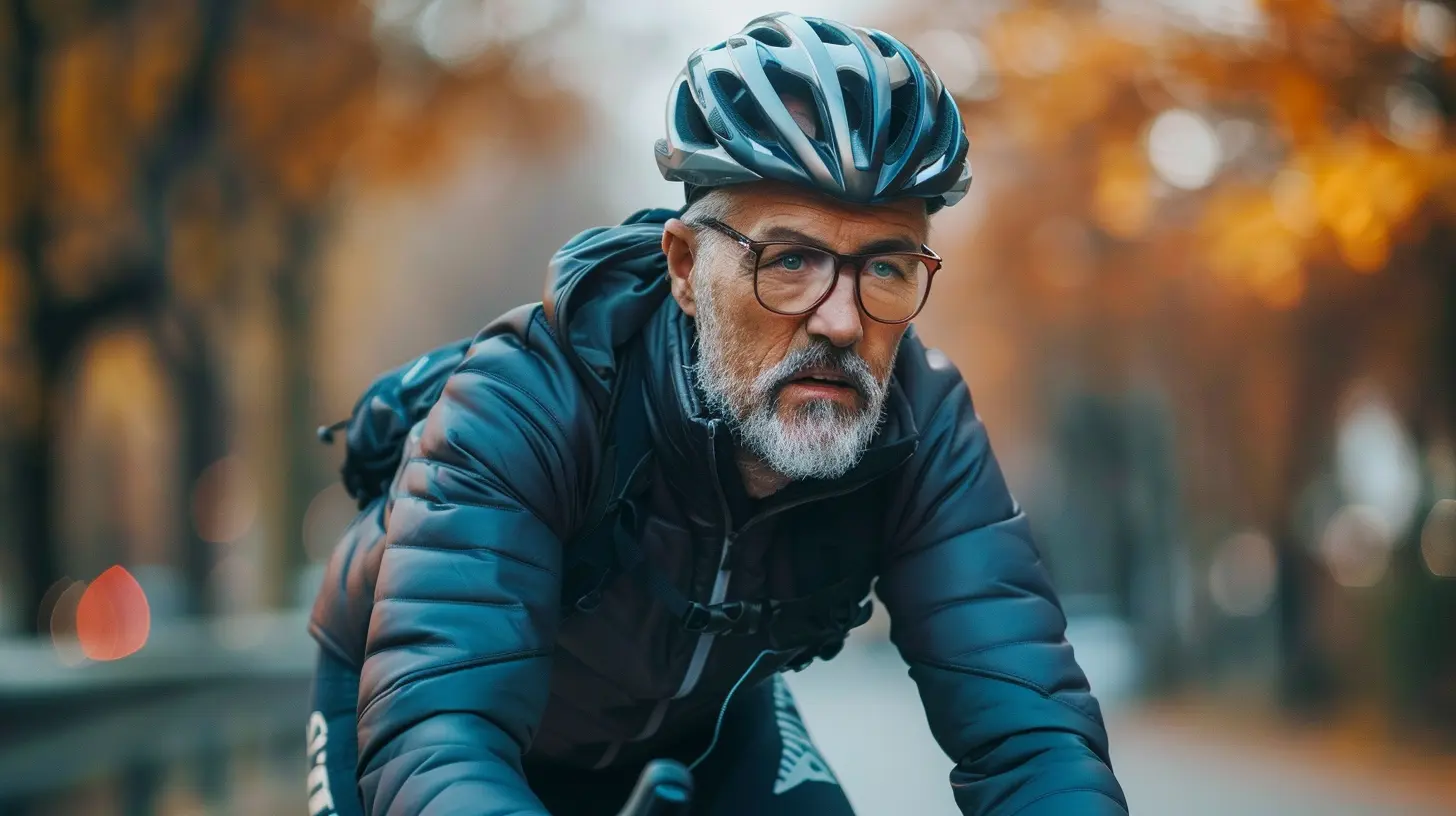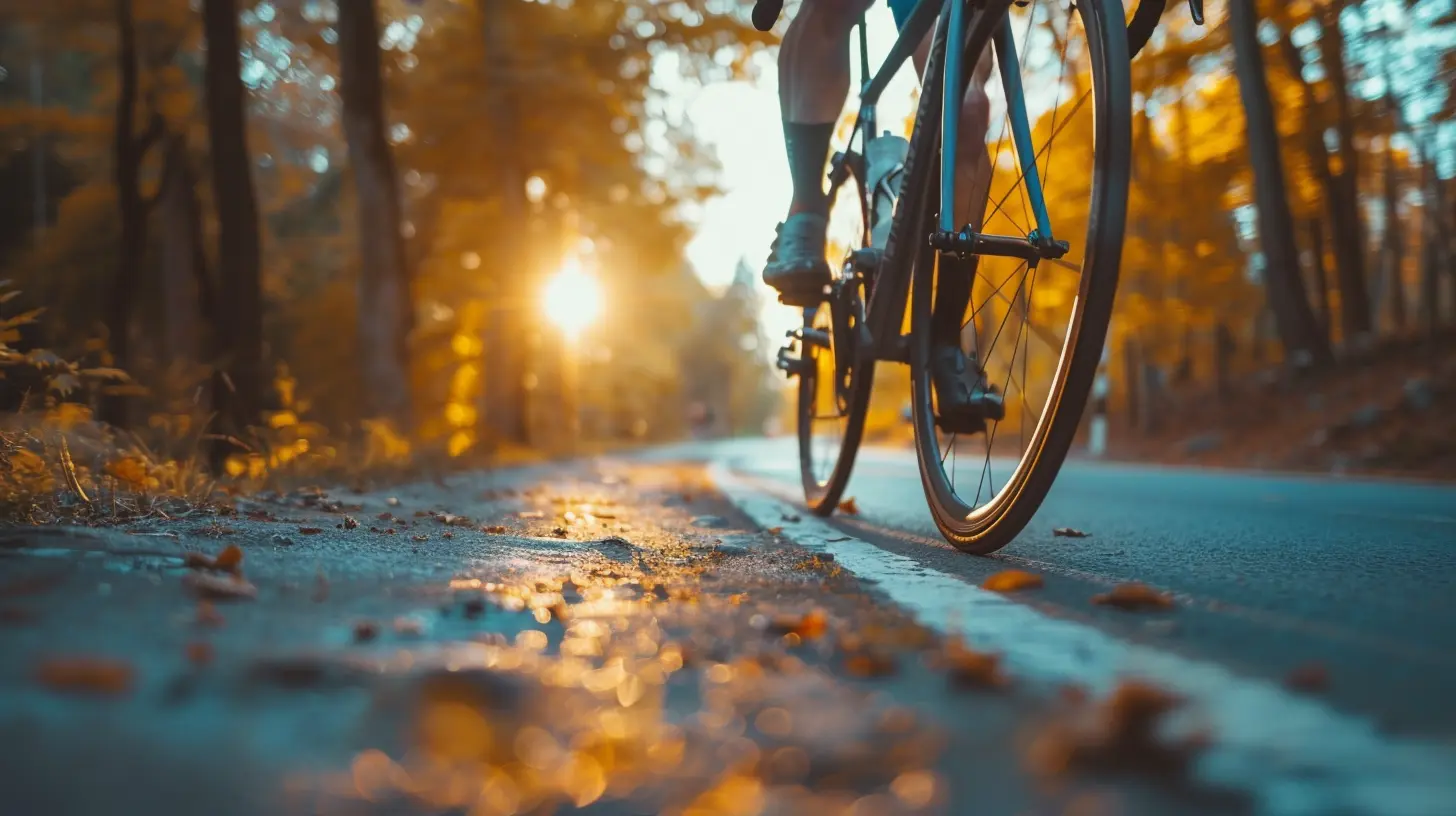The Connection Between Cycling and Longevity
22 September 2025
Let’s get one thing straight: if there’s a magical elixir to living longer, it’s probably not hidden in a kale smoothie or some fancy anti-aging cream. Nope. It might just be sitting in your garage, collecting dust—your trusty ol’ bicycle. Surprise! That two-wheeled wonder doesn’t just help you avoid traffic and look stylish in spandex, it also has superpowers when it comes to adding quality years to your life. What’s not to love?
So, let’s buckle those helmets, pump those tires, and dive into the wonderfully weird, scientifically-backed, and side-splittingly fun connection between cycling and longevity.
What’s the Deal With Longevity Anyway? 🧓👵
Before we start picturing ourselves riding bikes into our 100s with wind in our gray hair, we need to understand what longevity actually means. It doesn’t just mean living to a ripe old age (although yes, that’s part of it). It means living better, longer. And preferably without spending your golden years stuck on a couch binge-watching soap operas… unless that’s your thing. No judgment.Longevity is about:
- Healthspan (not just lifespan)
- Lower risk of chronic diseases
- Mental sharpness and emotional well-being
- Independence (because nobody wants to rely on someone else to open their pickle jars)
So, can hopping on a bicycle really make all these magical things happen? Let’s find out!
Pedal Power: How Cycling Boosts Your Body and Brain 🧠❤️
Okay, picture this: You’re gliding down a quiet path, sun on your face, legs pumping like a champ. It feels good, right? Well, your body is throwing a party inside too. Here’s why:1. Heart Health That’ll Make a Cardiologist Cry Happy Tears
Cycling gets the ol’ ticker pumping. In a good way. Studies show that regular cycling can lower your risk of heart disease by up to 50%. That’s like giving your heart a daily spa treatment... minus the cucumbers on the eyes.Cyclists tend to have lower blood pressure, improved circulation, and healthier cholesterol levels. Translation? You’re less likely to keel over when you hit 70. Yay!
2. Muscles, Joints, and the Fight Against Flabbiness
Listen, we love a good couch session like anyone else, but if you want muscles that don’t wiggle like jelly, cycling is your friend. It strengthens your legs, glutes, and core without punishing your joints like running does.Plus, muscle mass = better metabolism. Better metabolism = fewer “oh no, my jeans shrunk” moments. It's science.
3. Cycling: Nature’s Anxiety-Reducing, Brain-Boosting Therapy Session
You ever notice how problems seem smaller after a bike ride? That’s not just the endorphins talking (though they definitely help). Cycling has been shown to reduce symptoms of anxiety, depression, and brain fog.It boosts dopamine and serotonin levels — aka the “heck yes, life is good” chemicals — and increases oxygen flow to the brain, which keeps you sharp well past retirement.
Brains love bikes. Simple as that.
The Science-y Bit: Research Backs the Ride 🧪📊
And now, a small detour into Nerdsville. Don’t worry, we’ll keep it spicy.Ever heard of the Copenhagen City Heart Study? Probably not, unless you’re a research junkie. But it’s got some juicy data: People who cycled regularly had a 30% lower risk of dying prematurely than those who didn’t. That’s insane!
Researchers also found that middle-aged people who biked just 45 minutes a day had biological markers indicating they were YEARS younger than their non-cycling counterparts. Aka, cycling = real-life time travel.
Other studies have linked cycling with:
- Improved insulin sensitivity (awesome for preventing type 2 diabetes)
- Lower inflammation (the culprit behind many chronic diseases)
- Reduced cancer risk (especially colon and breast cancers)
So yeah, science isn’t just whistling Dixie here. It’s pedaling furiously toward the fountain of youth.
The Social Side of Cycling: Because No One Likes Being Lonely 😢➡️😄
Loneliness is more dangerous than smoking 15 cigarettes a day. We aren’t making this up. Social isolation is a huge risk factor for early death.Enter group rides, cycling clubs, Sunday coffee & ride traditions, and scenic tours with pals. Cycling is the ultimate social sport. You can chat, bond, complain about hills together, and feel like you’re part of a tribe of two-wheeled warriors.
Connected people = Happy people = Longer-living people. It’s like emotional armor for aging.
Cycling and Independence: Rollin’ Well into Old Age 🦸♀️🦸♂️
You know what’s cooler than riding a mobility scooter at 90? Not needing one.Cycling helps keep your balance, coordination, and strength intact. These are the very skills that protect older adults from falls—one of the leading causes of injury and NOPE moments past age 65.
Many centenarians cite “staying active” as their secret sauce. And what’s more active, fun, and freedom-inducing than hopping on a bike and feeling like a kid again?
Let’s put it this way: training wheels are optional, but attitude is everything.
The Joy Factor: Because Fun = Longevity 😄
Let’s not underestimate the sheer giddy joy of biking. When was the last time you shouted “Wheee!” while driving a car? Exactly.Cycling offers an escape from adulting stress. It’s like recess for grown-ups. You get to explore, feel the wind in your hair, dodge the occasional squirrel, and reclaim a sense of play.
And joy is a big player in the longevity game. Happy people live longer. Period.
So go ahead—pop a wheelie (carefully), take the scenic route, and grin like a maniac.
But Wait, Isn’t It Dangerous? 🚑😬
Alright, let’s talk elephant in the bike lane: safety.Yes, cycling comes with risks, especially if you treat traffic laws like suggestions. But modern infrastructure, helmet tech, and cycling education have made biking safer than ever before.
Bonus tips for staying alive while adding years to your life:
1. Wear a helmet (seriously, your brain is important)
2. Use bike lanes or trails when possible
3. Get good lights if you’re riding in the dark
4. Don’t try texting while riding (unless you’re a circus act)
Be smart, stay visible, and you’ll be just fine.
From Trikes to E-Bikes: There’s a Ride for Everyone 🛴🚲⚡
Not in Tour de France shape? Don’t worry. You don’t need quads of steel or lungs like bellows. There's a bike out there with your name on it.- Mountain bikes for thrill-seekers
- Cruisers for beach bums
- Road bikes for speed demons
- E-bikes for those who want a little help up the hill
- Stationary bikes for rainy days and Netflix marathons
If you can sit and move your legs, you can cycle, my friend.
Starting Late? Better Than Never 🕒🚨
Think you’re too old to start? Think again, you magnificent unicorn.Studies show people who start cycling later in life still reap the longevity benefits—sometimes even more than those who started earlier. Your body knows how to adapt and thrive, no matter your age.
All it takes is 20-30 minutes a day. That's one episode of your favorite show, minus the ads. Swap screen time for pedal time and you’re golden.
Wheely Good Conclusion (pun completely intended) 🎉
So there you have it. The humble bicycle isn’t just a mode of transport or a quirky first-date idea. It’s a bona fide fountain of youth on two wheels.Regular cycling can:
- Boost your heart and brain health
- Keep your muscles and bones strong
- Fight off chronic diseases
- Improve your mood and social life
- Increase your independence and fun factor
- Literally lengthen your life
You don’t have to be a Lycra-wearing, hill-climbing machine. Just get out there, ride a little, ride often, and have fun doing it. You’ll be an ageless pedaling legend in no time.
So what are you waiting for? Life’s a ride—don’t sit it out.
all images in this post were generated using AI tools
Category:
Cycling FitnessAuthor:

Arthur McKeever
Discussion
rate this article
1 comments
Hattie McConkey
Great article! Cycling not only boosts cardiovascular health but also enhances mental well-being, making it a fantastic activity for longevity. Encouraging people to embrace regular cycling can significantly improve their quality of life as they age.
September 22, 2025 at 3:28 PM

Arthur McKeever
Thank you! I completely agree; cycling offers incredible benefits for both physical and mental health, making it a wonderful choice for enhancing longevity and overall quality of life.


